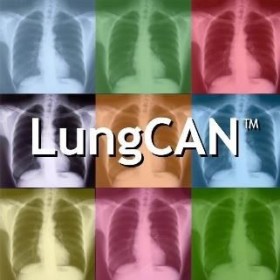As you know, we are in the midst of a crisis that threatens to impact our lung cancer community extremely hard. Many in our community have raised justified concerns about how they will be treated in the event of triage situations when there aren’t enough ventilators or other medical supplies for those who need them. Recently, leaked triage draft guidelines circulating on the internet have suggested that, in a triage situation, a diagnosis of “terminal” cancer would likely be a disqualifying factor for lifesaving access to care, even though we all know many survivors who have been given that diagnosis and are living and breathing among us many years later. Triage is an ugly reality, but we do not believe such crucial life and death decisions should be based solely on an advanced cancer diagnosis.
Our community is in great turmoil and distress. Our ability to change the situation is limited. Here’s what we can do.
LungCAN has developed the statement in the linked document. It lays out relevant lung cancer facts and implores triage officers to consider more than just the lung cancer diagnosis. To be clear, this letter does not request any ‘special favors’ for lung cancer patients, or that they are automatically moved to the front of the line; only that their diagnosis not be the sole reason they are excluded from lifesaving care.
Joint Statement on COVID19 Triage of LC Patients
If you have concerns that you may need to advocate for yourself in the event of a shortage of medical supplies, there are a few things you can do:
- Print a copy of this joint statement to present to a triage officer in the Emergency Room.
- Carry a copy of your medical records with you, OR, even better, ask your doctor if they will write a very short (2-3 sentences) note that explains a little more what your cancer prognosis is. One possible factor used in triage is the ‘life-years’ that might be saved, so it might be helpful if you are stable and have a reasonably good prognosis.
- Talk to your doctor now, before it’s a crisis, and explain your concerns, and thoughts and seek their advice.
This is an unprecedented time, with complex considerations, and so many unknowns. Will I get sick? Will I be seriously ill, or will it be a mild cold? What if there are equipment shortages? What if I’m recommended for ‘comfort care’ only? We encourage you to think through these issues, discuss them with trusted friends and family, and carefully consider your own preferences. Here are a few links that might be helpful as you consider these things.
- Applying HHS’s Guidance for States and Health Care Providers on Avoiding Disability-Based Discrimination in Treatment Rationing – An excellent guide for medical care providers on complying with federal disability rights laws in developing treatment rationing plans and administering care in the event of a shortage of medical equipment, hospital beds, or health care personnel.
- COVID-19 and Anti-discrimination – An update from the GO2 Foundation for Lung Cancer that talks about what they are doing to address these community concerns.
- COVID-19 and Lung Cancer – Accurate, up-to-date information from LUNGevity on COVID-19 and how it affects those with lung cancer. Also includes a link to Breathe Easier – An Emergency Response Fund for COVID-19.
- Coronavirus and Lung Cancer – a great resource from the GO2 Foundation for Lung Cancer with helpful information for patients, providers, and advocates.
- IASLC’s Guide to COVID-19 and Lung Cancer – An insightful collection of patient and member experiences with COVID-19
- On COVID-19, Ventilators, and Triage – blog post by Janet Freeman-Daily, Stage IV Lung Cancer Survivor and Passionate Advocate.
- The Conversation Project – a helpful resource for considering and talking about end of life care.
Know of a resource you think we should include? Email kimberly@lungcan.org.

